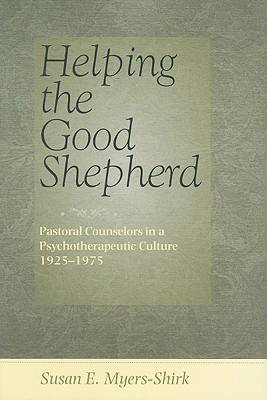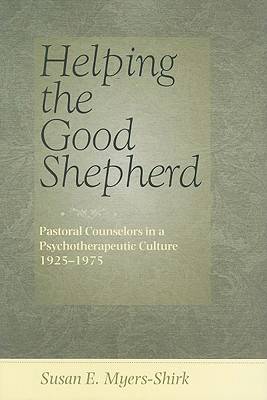
- Retrait gratuit dans votre magasin Club
- 7.000.000 titres dans notre catalogue
- Payer en toute sécurité
- Toujours un magasin près de chez vous
- Retrait gratuit dans votre magasin Club
- 7.000.000 titres dans notre catalogue
- Payer en toute sécurité
- Toujours un magasin près de chez vous
Helping the Good Shepherd
Pastoral Counselors in a Psychotherapeutic Culture, 1925-1975
Susan E Myers-ShirkDescription
This history of Protestant pastoral counseling in America examines the role of pastoral counselors in the construction and articulation of a liberal moral sensibility. Analyzing the relationship between religion and science in the twentieth century, Susan E. Myers-Shirk locates this sensibility in the counselors' intellectual engagement with the psychological sciences.
Informed by the principles of psychology and psychoanalysis, pastoral counselors sought a middle ground between science and Christianity in advising anxious parishioners who sought their help for personal problems such as troubled children, violent spouses, and alcohol and drug abuse.
Myers-Shirk finds that gender relations account in part for the great divide between the liberal and conservative moral sensibilities in pastoral counseling. She demonstrates that, as some pastoral counselors began to advocate women's equality, conservative Christian counselors emerged, denouncing more liberal pastoral counselors and secular psychologists for disregarding biblical teachings. From there, the two sides diverged dramatically.
Helping the Good Shepherd will appeal to scholars of American religious history, the history of psychology, gender studies, and American history. For those practicing and teaching pastoral counseling, it offers historical insights into the field.
Spécifications
Parties prenantes
- Auteur(s) :
- Editeur:
Contenu
- Nombre de pages :
- 320
- Langue:
- Anglais
- Collection :
Caractéristiques
- EAN:
- 9780801890475
- Date de parution :
- 02-03-09
- Format:
- Livre relié
- Format numérique:
- Ongenaaid / garenloos gebonden
- Dimensions :
- 160 mm x 224 mm
- Poids :
- 566 g







